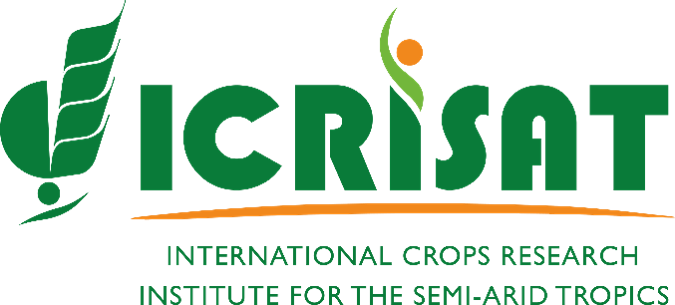Location
The International Crops Research Institute for the Semi-Arid Tropics (ICRISAT) is an international non-profit organization that undertakes scientific research for development.
Our approach is through partnerships and with an Inclusive Market Oriented Development.
Partnerships are critical as ICRISAT takes a catalyst role to help rural communities develop their own solutions and engage
the actors needed to bring the vision to reality.
Inclusive means we are inclusive of the farmers in developing solutions and inclusive of the all people especially women and youth.
Market Oriented Development means we focus our research and development efforts on making farming profitable,
helping move farmers from subsistence to commercial operators.
Members:
Resources
Displaying 41 - 45 of 75Mapping of household vulnerability and identification of adaptation strategies in dryland systems of South Asia
Water Demand Analysis and Irrigation Requirement for Major Crops at Holetta Catchment, Awash Subbasin, Ethiopia
The water demand and irrigation requirement of Holetta Catchment is not fully studied. In addition to this, due to scarcity of the available surface water and increase in water demand for irrigation, the major users of the river are facing a challenge to allocate the available water. Therefore, the aim of this research was to investigate the water demand of the major users of Holetta River and to study the irrigation requirement for major crops at Holetta catchment using questionnaire survey, statistical methods, and CropWat model.
The potential role of neglected and underutilised crop species as future crops under water scarce conditions in sub-Saharan Africa.
Modern agricultural systems that promote cultivation of a very limited number of crop species have relegated indigenous crops to the status of neglected and underutilised crop species (NUCS). The complex interactions of water scarcity associated with climate change and variability in sub-Saharan Africa (SSA), and population pressure require innovative strategies to address food insecurity and undernourishment. Current research efforts have identified NUCS as having potential to reduce food and nutrition insecurity, particularly for resource poor households in SSA.
Technical and institutional attributes constraining the performance of small-scale irrigation in Ethiopia.
Small-scale irrigation is playing an important role in adapting to climate change, achieving food security, and improving household incomes. The Ethiopian Government considers irrigated agriculture as a primary engine of economic growth and plans to increase the current level of irrigation infrastructure three-fold by the end of 2015. However, there has been concern regarding the performance and management of existing small-scale irrigation.
Quantifying Production Losses due to Drought and Submergence of Rainfed Rice at the households level Using Remotely Sensed MODIS data.
Combining remotely sensed Moderate Resolution Imaging Spectroradiometer (MODIS) data with Bangladesh Household Income and Expenditure Survey (HIES) data, this study estimates losses in rainfed rice production at the household level. In particular, we estimated the rice areas affected by drought and submergence from remotely sensed MODIS data and rice production from Household Income and Expenditure Survey (HIES) data for 2000, 2005 and 2010. Applying two limit Tobit estimation method, this study demonstrated that both drought and submergence significantly affected rice production.




